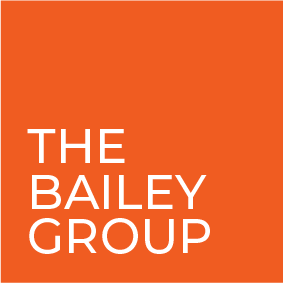
Building DEIB into your work culture
The United States is diversifying rapidly. Census figures suggest the country will be majority-minority by 2045, and most new working-age hires are now nonwhite.
Despite these demographic changes, many organizations — especially leadership teams — do not reflect the growing diversification of the U.S. population, and that often results in significant institutional barriers to opportunity and advancement.
Many white-majority organizations and leadership teams have recently taken a greater interest in promoting DEIB — diversity, equity, inclusion, and belonging — in their workplaces to better reflect America's diverse population and help dismantle the institutional barriers marginalized communities face.
What is DEIB and how is it different from DEI?
DEI has received greater attention among white people in recent years as violence and other forms of injustice perpetrated against historically marginalized groups have been brought into the public eye.
In a corporate context, DEI refers to the establishment of organizational cultures that respect individuals from diverse backgrounds, encourage equitable or fairer outcomes, and include different perspectives in decision making and other processes.
DEIB takes DEI one step further. It reflects the ultimate objective of promoting greater diversity, equity, and inclusion, which is to create an organization in which every individual truly feels like they belong. As Ivori Johnson at ChartHop points out, a more accurate acronym would look something like DEI=B.
Why now?
Many white Americans are hearing about diversity, equity, inclusion, and belonging for the first time in their lives — at least for the first time on a consistent, urgent basis. However, these core values have been important to minoritized groups in the United States for decades and even centuries. It's only now, in the wake of publicized police brutality against Black and brown people and the resulting wave of demand for civil rights, that many white Americans are realizing the importance of infusing DEIB into workplace cultures.
The real value of creating an inclusive workplace is that it's simply the right thing to do. There are, however, important business benefits companies can't ignore either. These include:
- Attracting a more dedicated customer base.
- Boosting hiring and retention.
- Promoting better engagement.
- Encouraging more innovation.
- Improving the bottom line.
There's no getting around it: DEIB is critical to success for companies operating in today's business environment, and it's essential for organizations that want to break down institutional barriers blocking the advancement of historically marginalized groups.
The pillars of DEIB
Diversity, equity, inclusion, and belonging are the pillars of DEIB. Let's take a look at each one in greater detail to build a more complete understanding of what exactly DEIB means in practice.
Diversity
Diversity refers to race, ethnicity, gender identity and expression, age, national origin, religion, disability, sexual orientation and veteran status. While diversity is an important foundational element of DEIB, it does not imply the acceptance or promotion of marginalized groups on its own. It's entirely possible for diversity to exist without equity and inclusion.
Equity
Equity ensures that all processes, procedures, and operations in a given workplace are fair and impartial in order to provide equal outcomes for all individuals. Equity should not be confused with equality, another term frequently used in the discourse but often improperly applied. Whereas equality focuses more on ensuring everyone has the same resources, support, and opportunities, it cannot account for the vast disparities in experience and access to resources, support, and opportunities that inevitably lead to different outcomes. That's where equity comes in.
Inclusion
Inclusion is the commitment to ensuring every employee feels like they have a place at the table and that they can make meaningful contributions to the wider organization. They are not just present. They are not just tolerated. Executive teams seek their opinions, perspectives, and viewpoints and actively work to incorporate them into the wider functioning of the team. Individuals are free to raise concerns and offer recommendations and can be reasonably confident those suggestions will be reflected in policy.
Belonging
Belonging is the quality in which employees feel like they play a meaningful part in the functioning of the larger whole. For DEI to help companies thrive, every employee has to feel like they are an accepted, respected, and valued member of the organization. That means their differences are celebrated, their perspectives are included, and their viewpoints are considered. Belonging is both the outcome of diversity, equity, and inclusion as well as the element that brings them all together.
Building your DEIB strategy
1. Recognize there's always something new to learn
Before you start building a DEIB strategy, you have to accept that there's no final destination when it comes to DEIB — instead, it is an ongoing process of learning, re-evaluating, and improving. There is always something new to learn and always room for improvement.
2. Start from the top
While the pressure to improve your DEIB efforts can come from anywhere (and often starts at a grassroots level), it is essential that the executive leadership team publicly commits itself to doing the hard work to reevaluate processes and structures and promote meaningful diversity, equity, inclusion, and belonging.
The rest of the organization will model their own leadership styles and work behaviors on that of top leadership, so promoting DEIB at the C-level will help those values cascade down to the rest of the organization.
3. Don't be afraid to get outside help
Central to DEIB is the idea that everyone is different and each individual has something of value to bring to the wider organization. That means leaders have to accept there are perspectives and knowledge they simply do not have.
Hiring an outside DEIB consultant lets you fill knowledge and experience gaps, helping you see where you and your organization's shortcomings are so you can put your focus and attention in the right places. It also brings in an outside voice who is not only trained to keep you accountable to your goals and objectives, but who is also better positioned to ask the tough questions and provide candid insights.
4. Be transparent
For all of this to work, you have to maintain complete transparency into all of your DEIB efforts and outcomes. Don't just broadcast and celebrate meaningful change, but also highlight shortcomings and explain how you intend to improve. Employees are often the first to know if DEIB efforts are working, so being open and honest about that helps you connect with employees and demonstrate your humility.
An important part of being transparent is also creating and maintaining open lines of communication between you and your employees. Employees should feel free to express their thoughts, feelings, and viewpoints in a psychologically safe setting to help leaders recognize where they are falling short.
Leadership qualities that help create an inclusive work culture
Leaders who are well-positioned to promote greater DEIB in the workplace must possess — or develop — a unique set of leadership skills. These include:
Humility
Humility is at the heart of promoting DEIB in the workplace. Leaders need to maintain a humble attitude and outlook to accept that there is no single right way of doing things, and that they have knowledge and experience gaps that can — and should — be filled by others. Humility means maintaining an open mind to the experiences and perspectives of others and accepting that everyone has the potential to offer something of value.
Empathy
Empathy refers to an individual's ability to identify with the thoughts, feelings, and attitudes of another person. It's a critical skill for building stronger bonds in the workplace, but it also helps people better understand other individuals' unique perspectives and experiences. Creating an organizational culture with empathy at the core helps individuals with diverse identities feel respected and valued, making it central to promoting DEIB in the workplace.
Communication
Leaders must have the ability and desire to communicate processes, visions, successes, and, importantly, failures to the wider team. This ensures organizational alignment around a core set of expectations while ensuring everyone is focused on defined values and objectives. An important part of communicating is the ability to listen. Leaders need to put their empathy muscles to work by actively listening to the concerns and viewpoints of others to set the foundation for diversity, equity, inclusion, and belonging.
Accountability
Leaders have to maintain a sense of commitment to the DEIB goals they set at the very beginning. That means holding themselves — and others — accountable for fulfilling their responsibilities and achieving those objectives. As mentioned above, leaders shouldn't be afraid to solicit outside support to help them stay accountable and ensure they remain committed to DEIB.
Developing inclusive leadership qualities
At The Bailey Group, we've committed ourselves to doing the hard, introspective work of evaluating our own practices, processes, and implicit bias in our ongoing effort to create a more inclusive workplace.
This has led to difficult but extremely important conversations that have given us new insights about our own organization. In addition to practicing essential leadership skills like humility and empathy, we use this information gathered from internal conversations to inform our coaching engagements, helping other leaders better promote diversity, equity, inclusion, and belonging in their own workplaces.
Reach out to our team today to start rebuilding your workplace culture from leadership on down.




